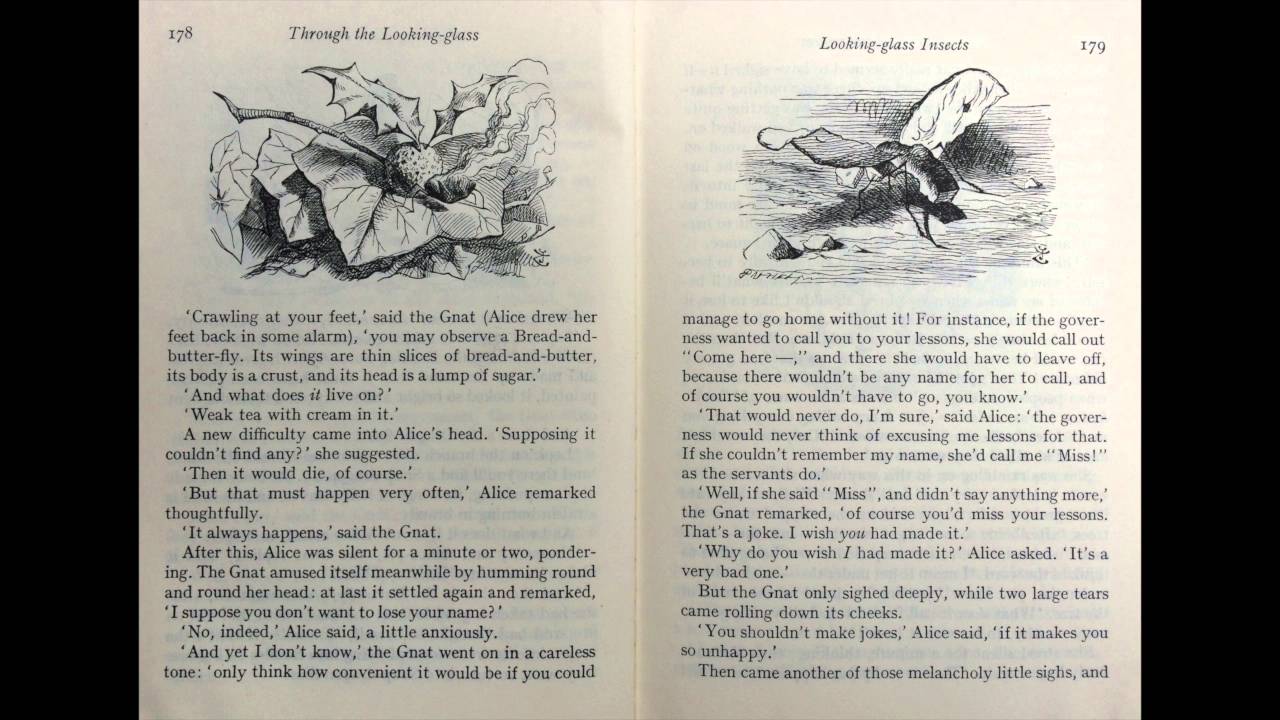
Although Alice in Wonderland is without a doubt the most famous story of Lewis Carroll, there is a second story, with the same protagonist, who is the same or more interesting than the first. Of him he said Ana Maria Matute, during his famous speech In the woods, with whom he entered the RAE: «The moment when Alice breaks through the crystal clear barrier of the mirror, which suddenly transforms into a clear silver mist that dissolves inviting contact with the girl's little hands, It has always seemed to me one of the most magical in the history of literature. […] Because we must not forget that what the mirror offers us is nothing other than the most faithful and at the same time the strangest image of our own reality. "
And this is precisely what the short novel Through the looking glass and what Alice found there. The book is a trip to another world, but at the same time it is a trip to our interior, to that other self that our subconscious contains. It is a story perhaps less spontaneous than its predecessor, but better constructed, and that undoubtedly ends up resonating with us as we read it, and even long after we have finished it.
the power of words
"If you want, I can give you the name of one of the insects in my country."
"If they have names," the Mosquito observed casually, "I suppose they will come when called."
"Not so far as I know," said Alicia.
"So," asked the Mosquito, "what use are names to them?"
"You're welcome to them," said Alicia, "but I imagine they are useful to the people who have put them up ... If not, why would things have names?"
"Who knows!"
Alice through the mirror returns to advance Wittgenstian concepts about language. A recurring theme in the novel is the importance of using words accurately, and the difference between proper nouns and common nouns, although both are a way of narrowing down and understanding reality.
Brainy questions aside, these linguistic games end up leading to comic situations, which are very fun to read, almost always because someone does not understand what the interlocutor wants to say to him. As the character of Tentetieso explains well about words, "The question is who is in charge here ... if they or me!"

"The insects of the House of the Mirror", third chapter of the Anglo-Saxon edition.
A dream within a dream
"You're just some kind of thing in the King's dream!"
"If you woke up now," Tara continued, "you would vanish like a candle vanishes when the wick runs out."
-Is not true! Alicia exclaimed indignantly. […] They will wake the King if they make so much noise.
"How do you want to awaken the King if you are only part of his dream?" You know very well that you are not real.
-I'm real'! Said poor Alicia, shedding abundant tears.
"You won't be real no matter how much you cry!"
There are many other interesting aspects in the novel: how the mirror warps and inverts reality, or the continuous parallels between Alice's moves and a game of chess, to cite just two examples. However, I would like to point out an idea, persistent throughout the story, and about which much less has been written: the enigmatic, and at the same time terrifying possibility that the world that surrounds us, and ourselves, is the dream of a God, or an entity alien to us.
The concept was exploited, in their own way, later by authors as different as Borges and Lovecraft. Alicia herself reflects on this fact in the novel: «So it is not a dream, unless everything is a dream and we are all part of it ... In that case, I'd rather it be my dream and not the Red King's! It bothers me a lot to be in a dream that is not mine! "
Dream or reality, the truth is that it is worth living in a world where we can read books like Alice through the mirrorby Lewis Carroll. A story that, ultimately, is the last days of youth for a girl who lived a long, long time ago.